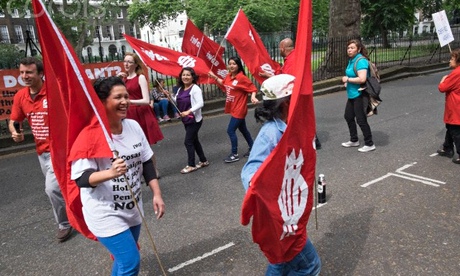Out in the real world, it was a pretty serious week for news. The US was on the brink of budget default, a British court heard how for two years social workers failed to detect the mummified body of a four-year-old starved to death by his mother, and it was claimed that the then Labour health secretary had covered up unnecessary deaths in a NHS hospital six months before the election.
In contrast, the phoney world of Twitter, the London chatterati and left-wing media was gripped 10 days ago by collective hysteria as it became obsessed round-the-clock by one story – a five-word headline on page 16 in the
Daily Mail.
The screech of axe-grinding was deafening as the paper's enemies gleefully leapt to settle scores.
Leading the charge, inevitably, was the Mail's bête noir, the BBC. Fair-minded readers will decide themselves whether the hundreds of hours of airtime it devoted to that headline reveal a disturbing lack of journalistic proportionality and impartiality – but certainly the one-sided tone in their reporting allowed Labour to misrepresent Geoffrey Levy's article on Ralph Miliband.
The genesis of that piece lay in Ed Miliband's conference speech. The Mail was deeply concerned that in 2013, after all the failures of socialism in the twentieth century, the leader of the Labour party was announcing its return, complete with land seizures and price fixing.
Surely, we reasoned, the public had the right to know what influence the Labour leader's Marxist father, to whom he constantly referred in his speeches, had on his thinking.
So it was that Levy's article examined the views held by Miliband senior over his lifetime, not just as a 17-year-old youth as has been alleged by our critics.
The picture that emerged was of a man who gave unqualified support to Russian totalitarianism until the mid-50s, who loathed the market economy, was in favour of a workers' revolution, denigrated British traditions and institutions such as the royal family, the church and the army and was overtly dismissive of western democracy.
Levy's article argued that the Marxism that inspired Ralph Miliband had provided the philosophical underpinning of one of history's most appalling regimes – a regime, incidentally, that totally crushed freedom of expression.
Nowhere did the Mail suggest that Ralph Miliband was evil – only that the political beliefs he espoused had resulted in evil. As for the headline "The Man Who Hated Britain", our point was simply this: Ralph Miliband was, as a Marxist, committed to smashing the institutions that make Britain distinctively British – and, with them, the liberties and democracy those institutions have fostered.
Yes, the Mail is happy to accept that in his personal life, Ralph Miliband was, as described by his son, a decent and kindly man – although we won't withdraw our view that he supported an ideology that caused untold misery in the world.
Yes, we accept that he cherished this country's traditions of tolerance and freedom – while, in a troubling paradox typical of the left, detesting the very institutions and political system that made those traditions possible.
And yes, the headline was controversial – but popular newspapers have a long tradition of using provocative headlines to grab readers' attention. In isolation that headline may indeed seem over the top, but read in conjunction with the article we believed it was justifiable.
Despite this we acceded to Mr Miliband's demand – and by golly, he did demand – that we publish his 1,000-word article defending his father.
So it was that, in a virtually unprecedented move, we published his words at the top of our op ed pages. They were accompanied by an abridged version of the original Levy article and a leader explaining why the Mail wasn't apologising for the points it made.
The hysteria that followed is symptomatic of the post-Leveson age in which any newspaper which dares to take on the left in the interests of its readers risks being howled down by the Twitter mob who the BBC absurdly thinks represent the views of real Britain.
As the week progressed and the hysteria increased, it became clear that this was no longer a story about an article on Mr Miliband's Marxist father but a full-scale war by the BBC and the left against the paper that is their most vocal critic.
Orchestrating this bile was an ever more rabid Alastair Campbell. Again, fair-minded readers will wonder why a man who helped drive Dr David Kelly to his death, was behind the dodgy Iraq war dossier and has done more to poison the well of public discourse than anyone in Britain is given so much air-time by the BBC.
But the BBC's blood lust was certainly up. Impartiality flew out of the window. Ancient feuds were settled. Not to put too fine a point on things, we were right royally turned over.
Fair enough, if you dish it out, you take it. But my worry is that there was a more disturbing agenda to last week's events.
Mr Miliband, of course, exults in being the man who destroyed Murdoch in this country. Is it fanciful to believe that his real purpose in triggering last week's row – so assiduously supported by the liberal media which sneers at the popular press – was an attempt to neutralise Associated, the Mail's publishers and one of Britain's most robustly independent and successful newspaper groups.
Let it be said loud and clear that the Mail, unlike News International, did NOT hack people's phones or pay the police for stories. I have sworn that on oath.
No, our crime is more heinous than that.
It is that the Mail constantly dares to stand up to the liberal-left consensus that dominates so many areas of British life and instead represents the views of the ordinary people who are our readers and who don't have a voice in today's political landscape and are too often ignored by today's ruling elite.
The metropolitan classes, of course, despise our readers with their dreams (mostly unfulfilled) of a decent education and health service they can trust, their belief in the family, patriotism, self-reliance, and their over-riding suspicion of the state and the People Who Know Best.
These people mock our readers' scepticism over the European Union and a human rights court that seems to care more about the criminal than the victim. They scoff at our readers who, while tolerant, fret that the country's schools and hospitals can't cope with mass immigration.
In other words, these people sneer at the decent working Britons – I'd argue they are the backbone of this country – they constantly profess to be concerned about.
The truth is that there is an unpleasant intellectual snobbery about the Mail in leftish circles, for whom the word 'suburban' is an obscenity. They simply cannot comprehend how a paper that opposes the mindset they hold dear can be so successful and so loved by its millions of readers.
Well, I'm proud that the Mail stands up for those readers.
I am proud that our Dignity For The Elderly Campaign has for years stood up for Britain's most neglected community. Proud that we have fought for justice for Stephen Lawrence, Gary McKinnon and the relatives of the victims of the Omagh bombing, for those who have seen loved ones suffer because of MRSA and the Liverpool Care Pathway. I am proud that we have led great popular campaigns for the NSPCC and Alzheimer's Society on the dangers of paedophilia and the agonies of dementia. And I'm proud of our war against round-the-clock drinking, casinos, plastic bags, internet pornography and secret courts.
No other newspaper campaigns as vigorously as the Mail and I am proud of the ability of the paper's 400 journalists (the BBC has 8,000) to continually set the national agenda on a whole host of issues.
I am proud that for years, while most of Fleet Street were in thrall to it, the Mail was the only paper to stand up to the malign propaganda machine of Tony Blair and his appalling henchman, Campbell (and, my goodness, it's been payback time over the past week!).
Could all these factors also be behind the left's tsunami of opprobrium against the Mail last week? I don't know but I do know that for a party mired in the corruption exposed by Damian McBride's book (in which Ed Miliband was a central player) to call for a review of the Mail's practices and culture is beyond satire.
Certainly, the Mail will not be silenced by a Labour party that has covered up unnecessary, and often horrific, deaths in NHS hospitals, and suggests instead that it should start looking urgently at its own culture and practices.
Some have argued that last week's brouhaha shows the need for statutory press regulation. I would argue the opposite. The febrile heat, hatred, irrationality and prejudice provoked by last week's row reveals why politicians must not be allowed anywhere near press regulation.
And while the Mail does not agree with
the Guardian over the stolen secret security files it published, I suggest that we can agree that the fury and recrimination the story is provoking reveals again why those who rule us – and who should be held to account by newspapers – cannot be allowed to sit in judgment on the press.
That is why the left should be very careful about what it wishes for – especially in the light of this week's rejection by the politicians of the newspaper industry's charter for robust independent self-regulation.
The BBC is controlled, through the licence fee, by the politicians. ITV has to answer to Ofcom, a government quango. Newspapers are the only mass media left in Britain free from the control of the state.
The Mail has recognised the hurt Mr Miliband felt over our attack on his father's beliefs. We were happy to give him considerable space to describe how his father had fought for Britain (though a man who so smoothly diddled his brother risks laying himself open to charges of cynicism if he makes too much of a fanfare over familial loyalties).
For the record, the Mail received a mere two letters of complaint before Mr Miliband's intervention and only a few hundred letters and emails since – many in support. A weekend demonstration against the paper attracted just 110 people.
It seems that in the real world people – most of all our readers – were far more supportive of us than the chatterati would have you believe.
PS – this week the head of MI5 – subsequently backed by the PM, the deputy PM, the home secretary and Labour's elder statesman Jack Straw – effectively accused the Guardian of aiding terrorism by publishing stolen secret security files. The story – which is of huge significance – was given scant coverage by a BBC which only a week ago had devoted days of wall-to-wall pejorative coverage to the Mail. Again, I ask fair readers, what is worse: to criticise the views of a Marxist thinker, whose ideology is anathema to most and who had huge influence on the man who could one day control our security forces … or to put British lives at risk by helping terrorists?










